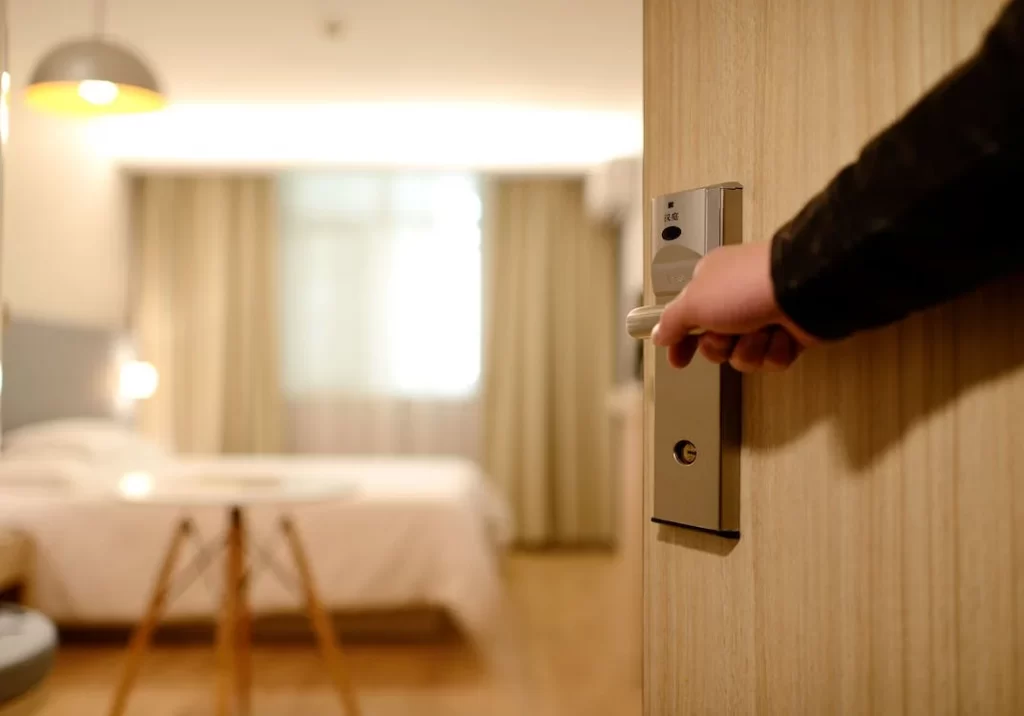In the ever-evolving landscape of the hospitality industry, one thing remains constant: the pursuit of guest satisfaction. Travelers today expect more than just a place to rest their heads. They crave memorable experiences, personalized services, and seamless interactions.
To meet these demands, hotels are turning to technology as a means to keep pace with change and to set new standards of excellence. From the moment a guest considers booking a room to check out, technology plays a pivotal role in shaping their perception of a hotel.
In this article, we will explore the myriad ways in which cutting-edge technology is enhancing the guest’s journey.

Incorporating Personalized Booking Experiences
In the era of personalized experiences, hotels are harnessing the potential of machine learning to redefine the booking process. A notable example is IHG Hotels & Resorts, which has embarked on a transformative journey in the hospitality industry.
Hospitalitynet notes that by leveraging cloud-based platforms, IHG has unveiled an innovative digital booking experience that empowers guests to tailor their stays. Guests can now handpick specific room attributes like higher floors or scenic views.
Moreover, IHG offers a range of enhancements, from elite-qualifying bonus points to food and beverage credits, lounge access, and special in-room welcome amenities. This initiative reflects a broader trend in the industry, with over 5,000 hotels enabling guests to curate their ideal stays. 100 more are expected to offer these personalized enhancements by the close of 2023.
Use of Contactless Check-In/Check-Out
Contactless check-in and check-out processes have emerged as a hallmark of convenience and safety. Hotels note that properties like YOTEL have wholeheartedly embraced this tech-forward approach.
YOTEL’s properties are designed with contactless capabilities, featuring user-friendly check-in/check-out kiosks that are continually updated to streamline the process. Additionally, the London-based hotel brand is pushing the envelope further with a cutting-edge mobile app.
This app empowers guests to seamlessly handle check-in procedures, retrieve digital room keys, manage their entire stay, and even explore the surrounding city. All this through their smartphones.
Such innovations not only reduce wait times but also exemplify the hotel industry’s commitment to leveraging technology for the utmost guest satisfaction.
Embracing the Hotel Casting Service
Hotel Casting services have emerged as a game-changer, revolutionizing in-room entertainment for guests. With hotel casting, travelers can seamlessly mirror or ‘cast’ content from their devices onto the larger in-room television screen.
This feature enhances the guest experience by granting them unparalleled flexibility and convenience in choosing and enjoying their preferred entertainment.
Hoteliers recognize the value of hotel casting as it aligns with the demand for personalized, at-home experiences. It reduces the need for additional hardware and ensures that guests can effortlessly access their content without the complexities of traditional connections.
Moreover, Allbridge notes that the convenience factor extends to the control of playback, volume, and navigation through familiar device interfaces. As a result, these services have become a hallmark of modern hospitality, boosting guest satisfaction and loyalty.
Implementing Voice-Activated Virtual Assistants
The advent of voice-activated virtual assistants has ushered in a new era of guest convenience and engagement within the hospitality industry. Hotels are increasingly implementing these intelligent systems in guest rooms, creating an environment where guests can interact with technology through natural language commands.
One noteworthy example is Amazon’s Alexa Smart Properties (ASP) for Hospitality, recently introduced at the Fairmont Le Manoir Richelieu in Quebec. This pioneering initiative marks the first Fairmont property globally and the first hotel in Canada to integrate ASP.
Each room is equipped with an Amazon Echo, providing visitors with a virtual concierge at their fingertips. Guests can effortlessly inquire about information, access entertainment, or control room features by simply uttering commands to Alexa.
From playing music and checking the weather to ordering room service, voice-activated virtual assistants are enhancing the guest experience. They minimize the need for face-to-face interactions and provide a seamless and personalized stay.
This technology not only streamlines tasks but also empowers guests to have greater control over their environment. This contributes to improved guest satisfaction and an elevated hotel experience.
Adding Digital Room Service
Digital room service platforms and mobile apps have redefined the way guests experience dining in hotels. These innovative tools empower guests to place food and beverage orders, customize their meals, and even schedule deliveries with utmost convenience.
With digital room service, guests can enjoy tailored dining experiences from the comfort of their rooms, reducing the need for in-person interactions. This technology not only simplifies the dining process but also allows hotels to offer a more personalized and responsive service to their guests.
Also Read: How to Save Time and Money When Choosing Food Products?
Conclusion
The integration of technology in the hospitality industry is reshaping the way hotels engage with their guests, enhancing every facet of the guest experience. These innovations meet the evolving expectations of modern travelers and reflect the industry’s commitment to providing unparalleled convenience, customization, and connectivity.
As we witness hotels embracing these tech-driven advancements, it becomes evident that the future of hospitality lies in the hands of innovation. By harnessing the power of technology, hotels are not just accommodating guests. They are delighting them, leaving a lasting impression, and ensuring that the hotel of tomorrow remains one step ahead in delivering customer satisfaction.


